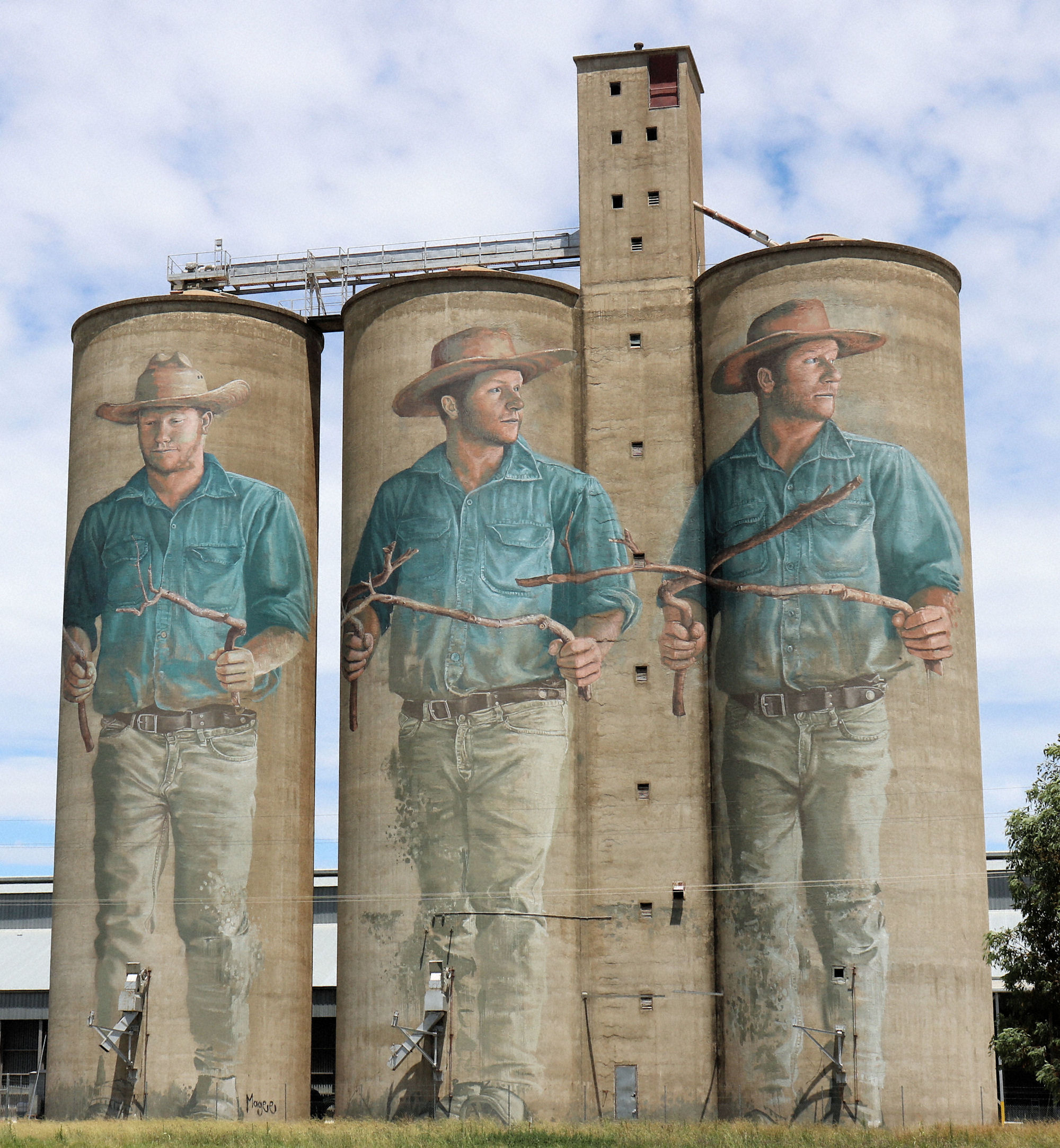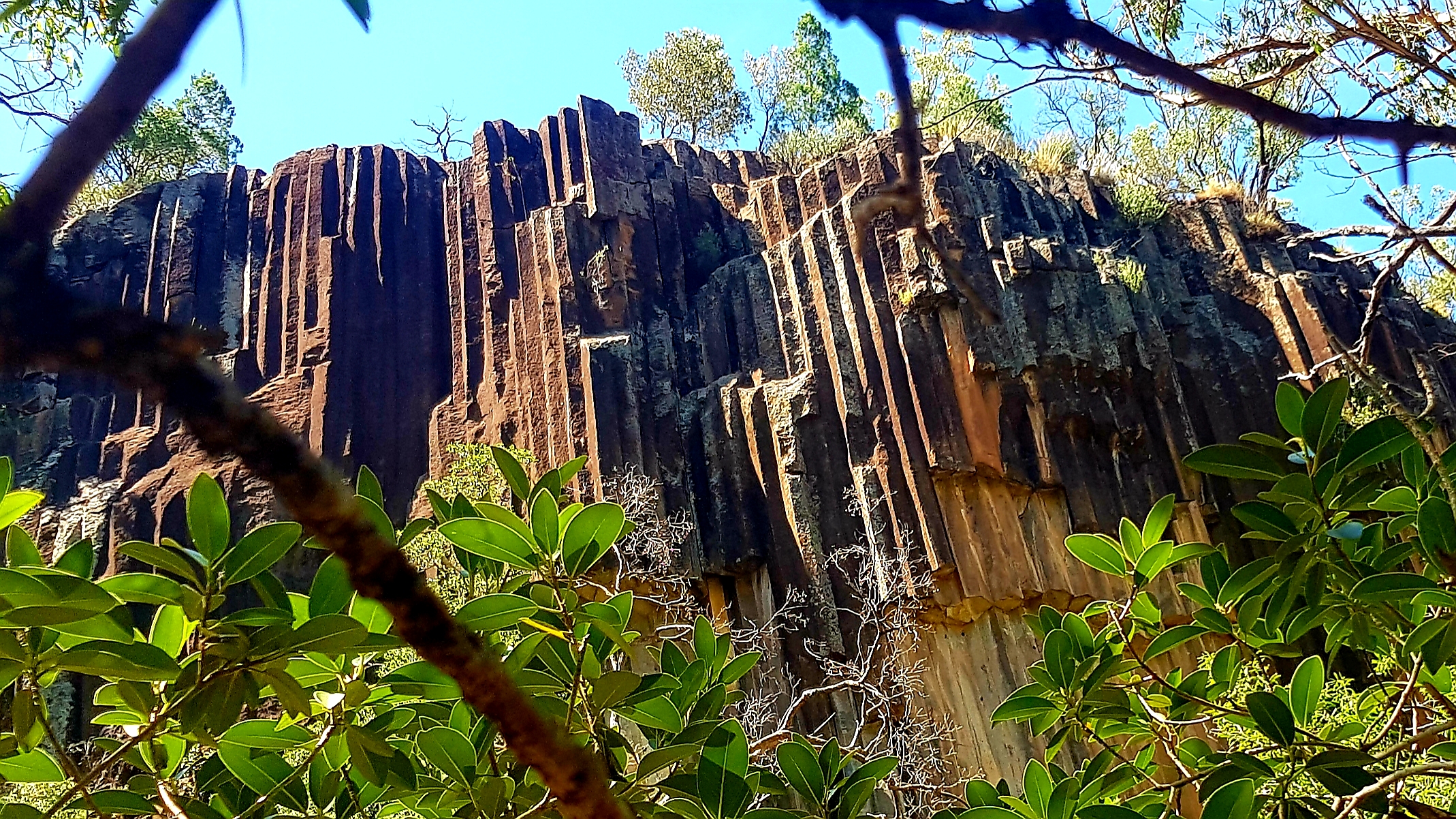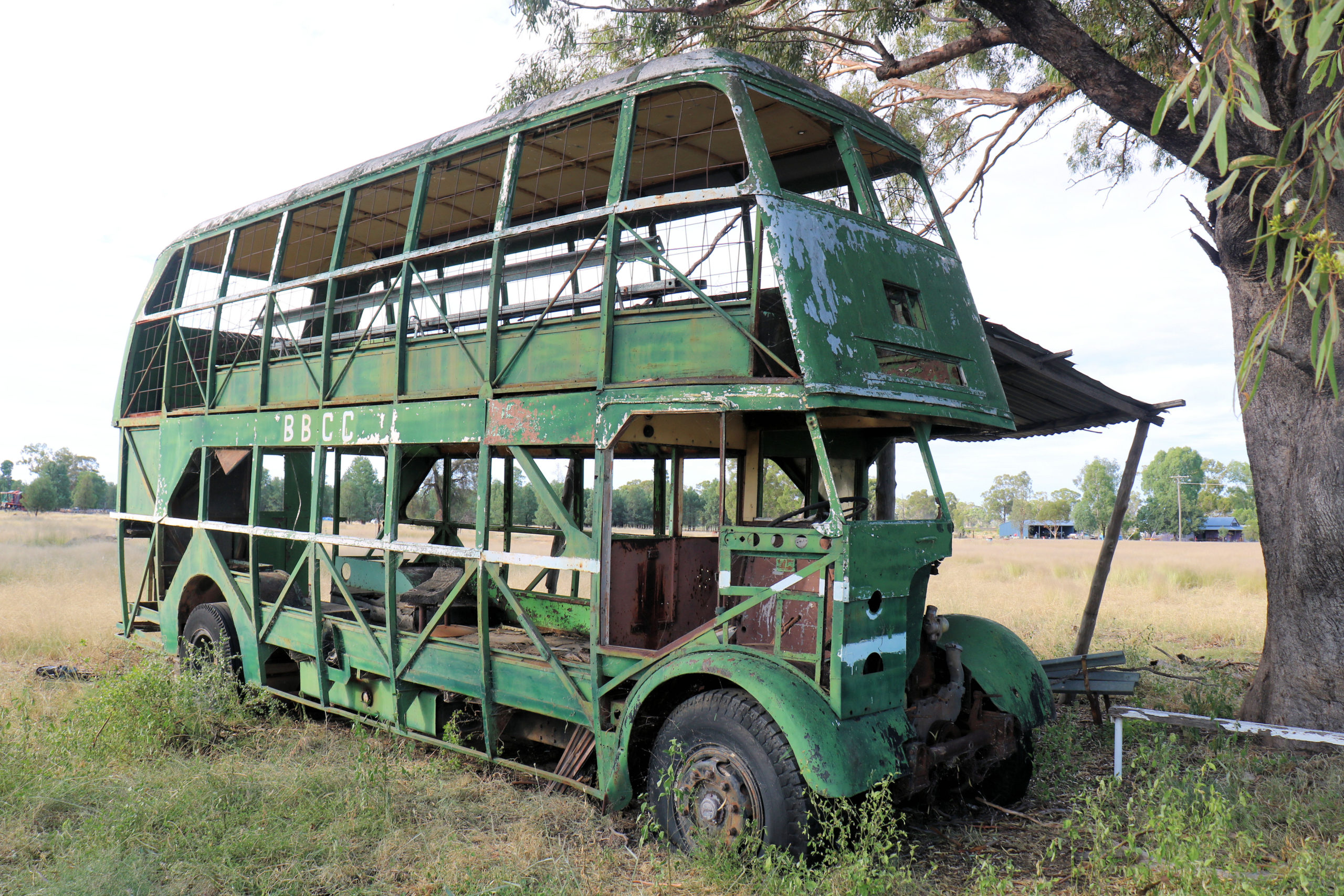Tag: North West Slopes
-
Barraba Silo Art Water Diviner

Barraba Silo Art – The Water Diviner Painted by Fintan Magee, the Barraba silo art depicts a water diviner, representing the constant search for water in the Australian bush. A water diviner is someone who searches for water using either two metal rods, or as depicted here, two sticks. Barraba is a small town 99… Read more
-
Sawn Rocks Mount Kaputar National Park

Sawn Rocks Mount Kaputar National Park Getting There Located around 40 km north east of Narrabri, Sawn Rocks is a geological formation of columnar basalt which resembles organ pipes. As part of the Mount Kaputar National Park, the area is managed by NSW National Parks and Wildlife Service, which ensures it is managed correctly. The… Read more
-
Baan Baa Cricket Club Grandstand

Baan Baa Cricket Club Grandstand Driving between Gunnedah and Narrabri on the Kamilaroi Highway we passed the small town of Baan Baa. Like most Australian towns it has a cricket club and oval, but what made us stop was its grandstand. Originally a Leyland Titan double-decker bus, this repurposed vehicle now serves as the club’s… Read more